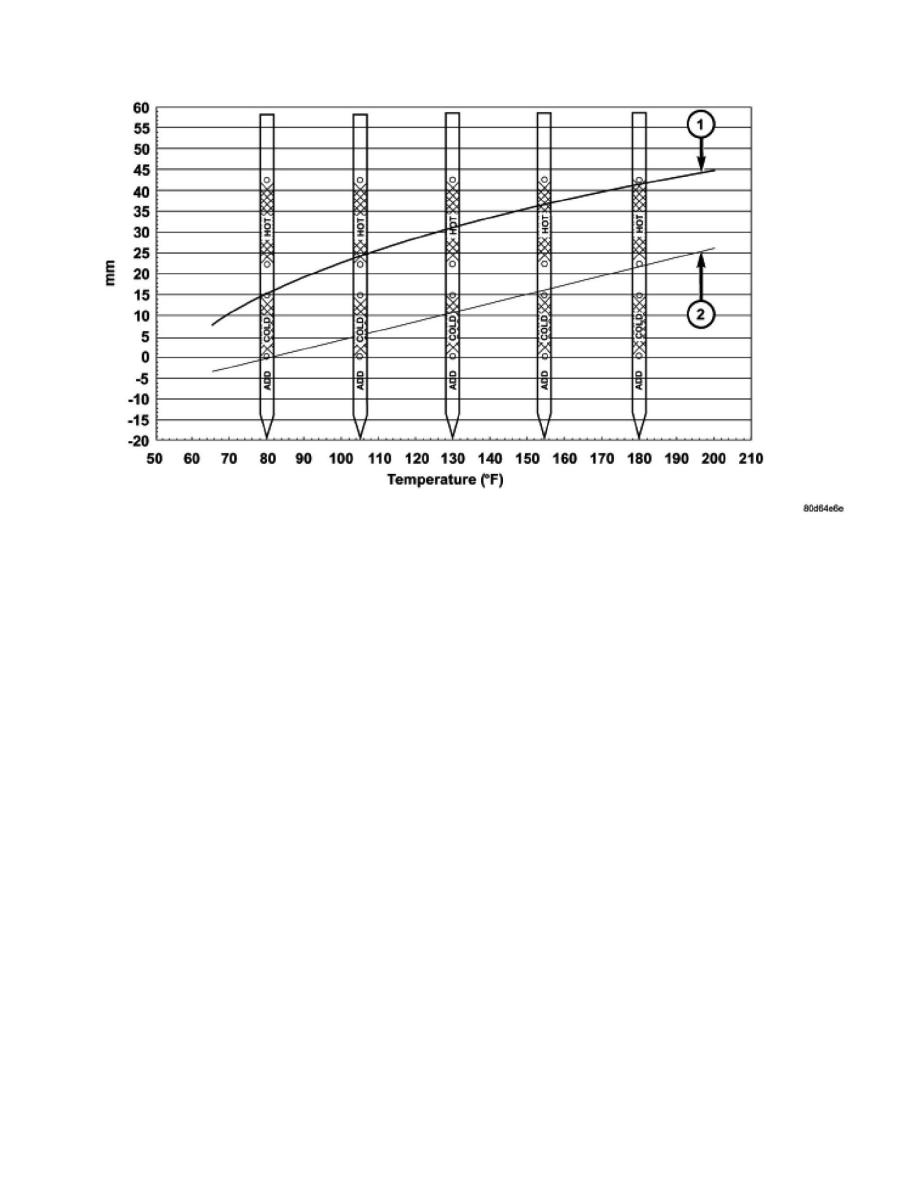PT Cruiser L4-2.4L (2008)

NOTE: Engine and Transaxle should be at normal operating temperature before performing this procedure.
1. Start engine and apply parking brake.
2. Hook up DRB scan tool and select transmission.
3. Select sensors.
4. Read the transmission temperature value.
5. Compare the fluid temperature value with the fluid temperature chart (1,2).
6. Adjust transmission fluid level shown on the indicator according to the chart.
7. Check transmission for leaks.
Low fluid level can cause a variety of conditions because it allows the pump to take in air along with the fluid. As in any hydraulic system, air bubbles
make the fluid spongy, therefore, pressures will be low and build up slowly.
Improper filling can also raise the fluid level too high. When the transaxle has too much fluid, the gears churn up foam and cause the same conditions
which occur with a low fluid level.
In either case, air bubbles can cause overheating and/or fluid oxidation, and varnishing. This can interfere with normal valve, clutch, and accumulator
operation. Foaming can also result in fluid escaping from the transaxle vent where it may be mistaken for a leak.
FLUID CONDITION
Along with fluid level, it is important to check the condition of the fluid. When the fluid smells burned, and is contaminated with metal or friction
material particles, a complete transaxle recondition is probably required. Be sure to examine the fluid on the dipstick closely. If there is any doubt about
its condition, drain out a sample for a double check.
Mopar(R) ATF+4 (Automatic Transmission Fluid), when new, is red in color. The ATF is dyed red so it can be identified from other fluids used in the
vehicle such as engine oil or antifreeze. The red color is not permanent and is not an indicator of fluid condition. As the vehicle is driven, the ATF will
begin to look darker in color and may eventually become brown. This is normal. ATF+4 also has a unique odor that may change with age.
Consequently, odor and color cannot be used to indicate the fluid condition or the need for a fluid change.
After the fluid has been checked, seat the dipstick fully to seal out water and dirt.
